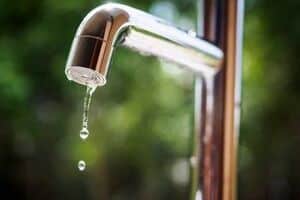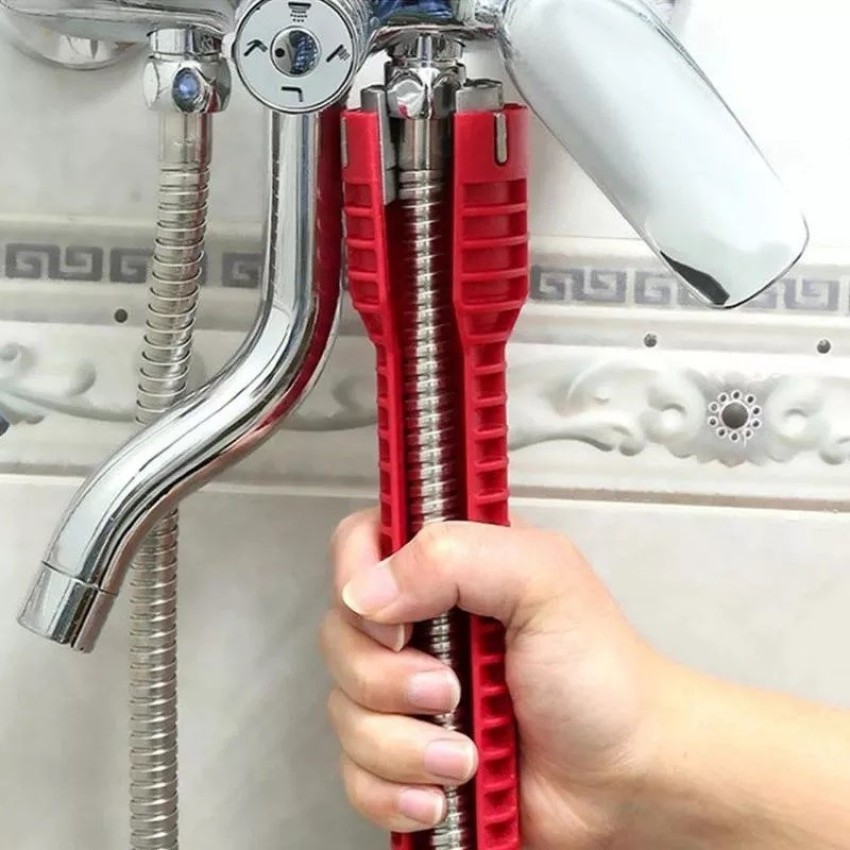Environmentally Friendly Piping Alternatives: Making Your Dwelling Eco-Friendly
Environmentally Friendly Piping Alternatives: Making Your Dwelling Eco-Friendly
Blog Article
What are your concepts about Eco-Friendly Plumbing Practices for a Greener Home?

Introduction
In today's globe, lasting living is coming to be significantly important. One area where property owners can make a considerable influence is via green pipes remedies. By taking on ecologically mindful techniques, houses can reduce their water and energy consumption while contributing to a healthier world.
Greywater Solutions
Greywater refers to carefully utilized water from sources such as showers, sinks, and washing devices. Rather than letting this water go to waste, greywater systems recycle it for non-potable uses such as landscape watering and commode flushing. By applying a greywater system, property owners can save fresh water resources and minimize strain on metropolitan wastewater treatment facilities.
Rainwater Harvesting
Rain harvesting includes collecting and keeping rain for different purposes, consisting of watering, commode flushing, and washing. Rain harvesting systems typically consist of a collection surface (such as a roofing system), rain gutters, downspouts, and storage tanks. By harvesting rainwater, homeowners can lower their reliance on municipal water resources and save freshwater sources.
Solar Water Heaters
Typical water heaters rely on nonrenewable fuel sources or electrical energy to heat water, adding to carbon emissions and power consumption. On the other hand, solar water heaters make use of sunlight to warmth water, offering an eco-friendly and environmentally friendly option. By harnessing solar energy, home owners can lower their energy costs and reduce their carbon footprint.
Eco-friendly Pipeline Products
Conventional plumbing products such as copper and PVC can have negative ecological effects throughout production and disposal. However, there are lasting alternatives readily available, such as recycled steel, cross-linked polyethylene (PEX), and high-density polyethylene (HDPE). These eco-friendly pipeline materials provide longevity, longevity, and decreased ecological impact.
Water-Efficient Components
Conventional components commonly waste water unnecessarily. Nevertheless, modern low-flow toilets, taps, and showerheads are created to decrease water use without compromising efficiency. These components can dramatically minimize household water intake, causing lower water bills and a minimized environmental impact.
Energy-Efficient Appliances
Along with water-efficient components, energy-efficient devices can even more lower a home's environmental impact. High-efficiency cleaning devices and dishwashers make use of much less water and power per cycle, helping to preserve resources and reduced utility bills. When buying devices, seek power CELEBRITY ® licensed designs for optimal effectiveness.
Smart Water Monitoring Systems
Breakthroughs in innovation have made it much easier than ever before to monitor and optimize water use in the home. Smart water management systems make use of sensors and information analytics to track water use in real-time, identify leakages, and give understandings for conservation. By executing wise water administration remedies, property owners can decrease waste and make best use of performance.
Health and wellness Benefits
In addition to ecological benefits, green plumbing can additionally contribute to enhanced interior air quality and health and wellness. By utilizing safe materials and lessening chemical direct exposure, homeowners can develop a healthier living atmosphere on their own and their family members.
Federal government Rewards
Lots of federal governments supply economic incentives to encourage house owners to adopt eco-friendly plumbing practices. These rewards may consist of refunds, tax obligation debts, and low-interest financings for energy-efficient upgrades. By making the most of these programs, home owners can make environment-friendly enhancements much more budget friendly and available.
Price Factors to consider
While environment-friendly plumbing alternatives might have higher ahead of time costs than conventional choices, they frequently offer long-lasting cost savings with decreased water and energy bills. In addition, several federal governments supply rewards such as rebates and tax credit scores for environmentally friendly upgrades, helping to balance out first costs.
Installation and Maintenance
Correct setup and routine maintenance are necessary for making certain the effectiveness and long life of eco-friendly pipes systems. It is essential to hire qualified professionals to mount and service these systems to prevent issues and take full advantage of efficiency. Regular maintenance jobs such as looking for leakages and cleaning filters can additionally help protect against issues and optimize efficiency.
Environmental Advantages
The environmental benefits of eco-friendly plumbing are substantial. By conserving water and energy, house owners can lower their carbon footprint and reduce their effect on natural deposits. Additionally, green plumbing practices can aid secure ecosystems and maintain biodiversity for future generations.
Conclusion
To conclude, environment-friendly pipes alternatives supply numerous benefits for property owners and the environment alike. By investing in water-efficient fixtures, greywater systems, rain harvesting, solar hot water heater, environment-friendly pipeline materials, energy-efficient appliances, smart water monitoring systems, and various other sustainable solutions, houses can lower their environmental footprint, reduced their utility costs, and add to a much healthier earth for future generations.
10 Greener Plumbing Solutions for a Sustainable Home
Install Water-Saving Fixtures
One of the most effective ways to conserve water is by installing water-saving fixtures. Low-flow toilets, aerated faucets, and adjustable showerheads are excellent choices. These fixtures reduce water consumption without compromising performance, allowing you to save both water and money.
Embrace Tankless Water Heaters
Say goodbye to energy-hungry traditional water heaters! Tankless water heaters are a greener alternative. Unlike their counterparts, these systems heat water on-demand, eliminating the need for a constantly heated reservoir. By only heating water when needed, tankless water heaters save energy and lower utility costs.
Opt for Greywater Recycling
Make the most of your water usage by recycling greywater. Greywater recycling systems collect and treat water from showers and laundry, making it suitable for non-potable uses like toilet flushing or watering plants. This reduces the strain on freshwater resources and minimizes water waste.
Consider Energy-Efficient Water Heaters
Upgrade to energy-efficient water heaters like heat pump water heaters or solar water heaters. Heat pumps utilize ambient air to heat water, while solar heaters use the sun's energy. Both options significantly reduce energy consumption and contribute to a greener home.
Invest in Leak Detection and Prevention
Undetected leaks can lead to significant water waste. Install smart water leak detection devices that monitor your water usage and promptly notify you of any leaks. By taking immediate action, you can prevent water waste and avoid potential damage to your home.
Insulate Your Pipes
Insulating your pipes is a simple yet effective way to improve energy efficiency. Properly insulated pipes minimize heat loss and reduce the risk of frozen pipes in colder climates. By conserving heat and preventing energy waste, you can save on energy bills while enjoying a greener plumbing system.
Harness the Power of Rainwater
Rainwater harvesting is a sustainable practice that can supplement your water needs. Collect rainwater in barrels or tanks and use it for tasks like watering your garden or flushing toilets. This reduces reliance on municipal water supplies and conserves precious freshwater resources.
Choose Eco-Friendly Plumbing Materials
When upgrading your plumbing system, opt for eco-friendly materials. Water-efficient fixtures made from recycled materials and piping materials like PEX (cross-linked polyethylene) promote sustainability. These choices not only conserve resources but also contribute to a greener planet.
Upgrade to Dual-Flush Toilets
Dual-flush toilets offer two flush options: a lower-volume flush for liquid waste and a higher-volume flush for solid waste. By using the appropriate flush setting, you can significantly reduce water consumption. Dual-flush toilets are an easy and efficient way to conserve water in your home.
https://www.croninplumbingandheating.com/post/10-greener-plumbing-solutions-for-a-sustainable-home

I am very fascinated with Eco-Friendly Plumbing Practices for a Greener Home and I really hope you appreciated my blog post. Kindly set aside a second to share this article if you enjoyed reading it. Thank you for your time invested reading it.
Hire A Pro Report this page